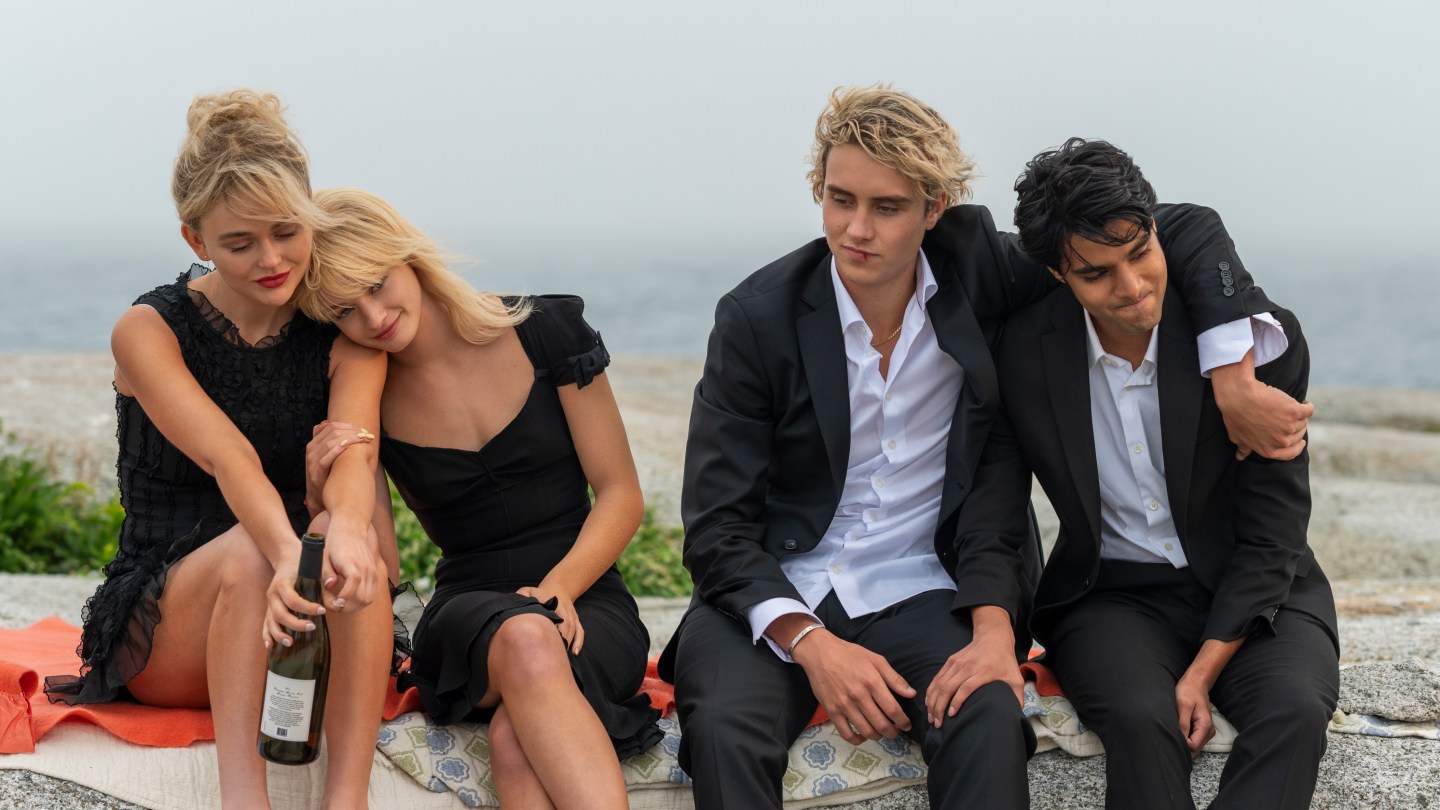In the final stretch of its eight-hour run, Amazon’s adaptation of E. Lockhart’s popular novel, We Are Liars, finally captures the audience’s attention with a significant reveal. However, detailing this twist would spoil the surprise that stands as the most pivotal moment in the series. While the ambitious move kept viewers on edge, it raised questions about whether it truly paid off, given its reliance on relationships that feel underdeveloped and choices that stretch believability.
The series, helmed by creators Julie Plec and Carina Adly Mackenzie, presents a narrative that combines elements of YA romance, proverbial whodunit mysteries, and scathing commentary on wealth. It’s a mixture that often comes off as bland, relying on recycled tropes and overly dramatized fairy tale metaphors.
The story begins with 16-year-old Cadence Sinclair (played by Emily Alyn Lind), who washes ashore on a New England island, stranded and suffering from memory loss. A year later, as she attempts to recover from a serious brain injury, Cadence returns to her family’s summer home, Beechwood, seeking answers to her lost memories.
She finds herself interacting with family members who are frustratingly tight-lipped about the events surrounding her accident, which remain pivotal to the narrative until much later in the season. As Cadence navigates her return to Beechwood, the series methodically unfolds her sixteenth summer, during which the island seems like a fantastical refuge, and Cadence herself embodies “strength and promise and spun gold.”
The plot hints at a sparkling teen romance, reminiscent of The Summer I Turned Pretty. Cadence’s burgeoning feelings for her childhood friend, Gat (played by Shubham Maheshwari), seem promising at first. Despite efforts by premiere director Nzingha Stewart to capture the chemistry through close shots and intimate gestures, the portrayal falls flat, hindered by a lack of genuine connection amid a drawn-out cycle of emotional indecisiveness.
As the summer progresses, the idealized romance is overshadowed by a larger sense of disillusionment. Cadence, fixated on Gat, begins to uncover the deeply rooted racism and snobbery embedded within her affluent family. Her cousins, Mirren and Johnny, portrayed convincingly by Esther McGregor and Joseph Zada, also begin to recognize the troubling dynamics at play despite having limited screen time compared to Cadence.
At the helm of the Sinclair dynasty is Cadence’s grandfather, Harris (David Morse), whose formidable wealth maintains the family’s opulent lifestyle and exerts control over the family dynamics, including the behavior toward his daughters: Cadence’s mother, Penny (Caitlin FitzGerald); Johnny’s mother, Carrie (Mamie Gummer); and Mirren’s mother, Bess (Candice King). The dramatic tension escalates as family tensions intersect with the prejudices that permeate their interactions, particularly noted in their treatment of Ed (Rahul Kohli), Carrie’s boyfriend.
Despite addressing themes of wealth and emotional poverty within the Sinclair family, We Are Liars feels like another iteration of stories that tackle affluent families grappling with their own dysfunctions. With comparisons to popular series like Succession and The White Lotus, the show struggles to offer fresh insights, with its sluggish pace making it challenging to empathize with Cadence’s gradual realization of life beyond her privileged existence.
The series culminates in a climactic twist that, while intended to provide a poignant closure, often feels overwhelming and contrived. Rather than resonate with the emotional weight that was intended, the final reveal leads to confusion, detracting from the narrative arc that sought to delve into Cadence’s experiences and the complexities of her world.
In one moment of frustration, Cadence voices her weariness with fairy tales, and many viewers may find themselves echoing that sentiment. The series ultimately presents a compelling mystery wrapped in a convoluted and, at times, frustrating narrative.

